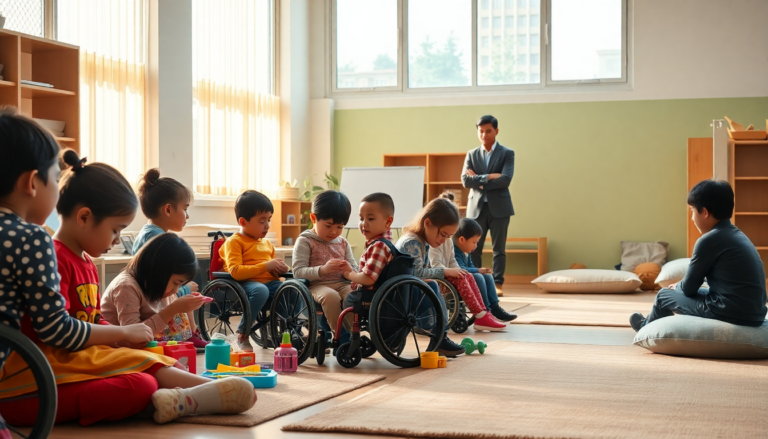Argomenti trattati
Ukeru training has quickly become an essential resource for educators working with K-12 special education students, especially those who may show aggressive behaviors. But what makes this approach so innovative? It focuses on **safety**, **relationship-building**, and developing effective **crisis prevention strategies**. After more than five years in the field, trainers have witnessed firsthand the transformative impact Ukeru can have—not just on students, but also on staff, creating an environment where everyone can truly thrive.
The Role of Ukeru Training in Special Education
So, how does Ukeru training equip educators to handle challenging behaviors? By providing them with the tools to manage these situations constructively. The training emphasizes creating safe spaces that prioritize the emotional and physical well-being of both students and educators. By minimizing the use of restraint techniques, Ukeru fosters a culture of **respect** and **understanding**, which is crucial in special education settings where students often grapple with interpersonal dynamics.
One standout feature of Ukeru is its focus on retraining the brain. This means not only adopting new, positive behaviors but also unlearning less appropriate ones. Trainers often note the challenges that come with behavior shifts, emphasizing that this process takes time. Understanding this gradual transformation is vital for both educators and students as they navigate their learning journeys together. The progress that unfolds within the classroom truly showcases the effectiveness of the Ukeru approach.
Benefits of Ukeru for Educators
What can educators expect from Ukeru training? For starters, it provides a suite of **crisis prevention tools** that can significantly boost their confidence when addressing aggressive behaviors. The training encourages staff to approach challenges with a calm and collected mindset, leading to a more stable learning environment. Many educators report feeling more equipped to handle crises, which ultimately contributes to fewer disruptions in classroom dynamics.
Furthermore, Ukeru instills a strong sense of respect within educational settings. Its philosophy urges educators to treat every student with dignity, regardless of their behavior. This not only fosters a more positive atmosphere but also lays the groundwork for mutual respect between students and staff, creating a supportive community where everyone can flourish.
Advice for New Ukeru Trainers
For those stepping into the role of Ukeru trainers, patience and perseverance are crucial. Remember, gaining buy-in from staff may take time, but the long-term benefits of effective training are well worth the effort. New trainers should concentrate on the transformative potential of Ukeru, viewing this investment in training as an investment in their students’ futures and their own educational practices.
Ultimately, Ukeru is about more than just managing behaviors; it’s about building meaningful relationships and ensuring safety. As trainers and educators embrace these principles, they can look forward to creating environments where students feel valued, understood, and empowered to learn. Isn’t that the kind of educational setting we all strive for?

